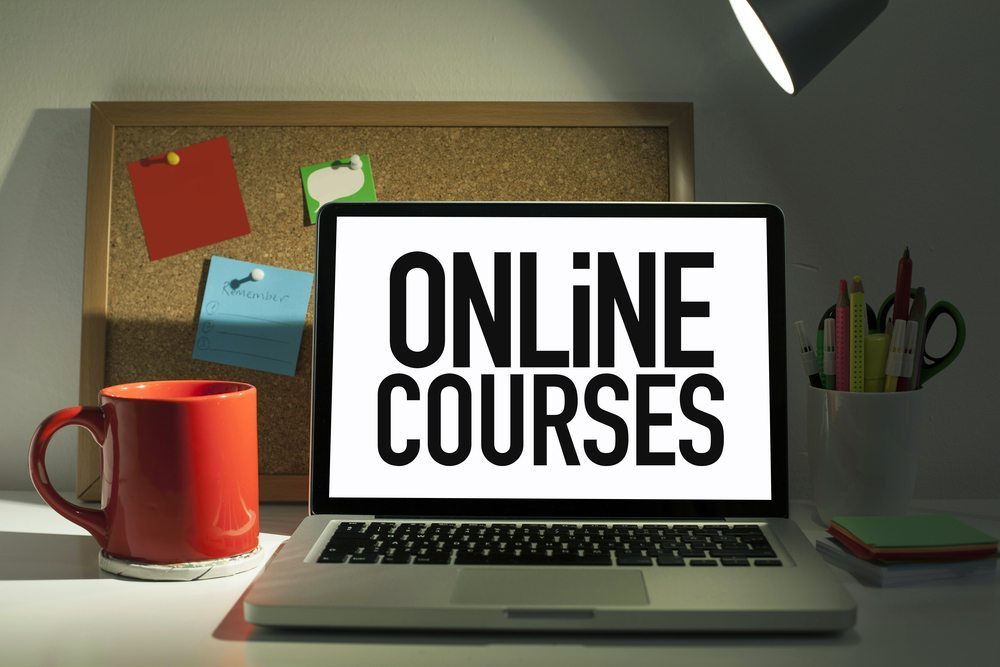Benefit of a Degree in Exercise Science Online
An online degree in exercise science attained opens up an unlimited number of opportunities. Below are only a few of the most important benefits:
1. Adaptability and Practicality
With an online programme, you can learn at any time and from any location. There is no need to travel to the university or change your plans in order to meet the required class periods. Your personal education is your responsibility. The ability to pursue higher education is made possible for many students by the flexibility of online learning.
2. Current Curriculum
The subject of exercise science is constantly changing. Reputable online schools aim to equip students with the newest information, resources, and abilities to help them succeed in the workforce. Industry professionals assess and update curricula on a regular basis.
3. Reasonably priced and easily accessible.
In many cases, online degrees are less expensive than normal on-campus programmes. You also save money on things like lodging and board, parking, and transportation. Students who could not have been able to complete a degree owing to location, health concerns, or other life considerations can now enrol in online programmes.
4. Acquire Useful Skills
Gaining knowledge about the human body, physical fitness, and health through an exercise science degree makes one eligible for a variety of career paths. You will acquire knowledge and abilities in areas such as biomechanics, prescription and testing of exercises, nutrition, and health coaching. These abilities provide access to an extensive variety of professional options.
5. Possibilities for Networking
Peers and teachers will be connected with you while you are online. Create business relationships that may result in job referrals, joint ventures, mentoring, and more. Additionally, some programmes offer chances to take part in research, study abroad, and internships.
Courses You Can Expect to Take
Here are some of the courses you can expect to take:
1. Anatomy and Physiology
You’ll learn about the structure and function of the human body, including the skeletal, muscular, nervous, and cardiovascular systems. This knowledge provides essential context for designing effective exercise programs and helping clients achieve their goals.
2. Nutrition and Weight Management
This course covers core nutrition principles and how to develop customized diet plans. You’ll study macronutrients like carbohydrates, proteins, and fats, as well as vitamins and minerals. You’ll also learn strategies for sustainable weight loss and management.
3. Biomechanics
This class focuses on how the body moves and the forces that act upon it. You’ll explore concepts like leverage, torque, and center of gravity. Understanding biomechanics helps in evaluating clients’ movement patterns, reducing injury risk, and maximizing performance.
4. Exercise Prescription
Here you’ll learn how to design customized exercise programs based on clients’ needs, abilities, and goals. The course covers principles of training like progression, overload, and specificity. You’ll get experience evaluating fitness levels, setting appropriate intensities, and modifying workouts as needed.
5. Health and Fitness Assessment
This course teaches you how to conduct comprehensive assessments to evaluate clients’ starting fitness levels and health risks. You’ll learn skills like taking blood pressure, measuring body composition, assessing flexibility and range of motion, and evaluating cardiovascular endurance. Assessment results inform program design and track progress over time.
READ ALSO: The Ultimate Guide to Online Business Management Degree Classes
Choosing the Right Online Exercise Science Program
When selecting an online degree program in exercise science, you want one that will prepare you for success in this growing field. Here are some factors to consider:
1. Accreditation
Look for programs accredited by the Commission on Accreditation of Allied Health Education Programs (CAAHEP). Accredited programs meet high standards for quality and will provide you with the knowledge and skills needed for a career as an exercise scientist or personal trainer.
2. Curriculum
The curriculum should cover areas like human anatomy, kinesiology, nutrition, and exercise physiology. It should also provide opportunities for hands-on learning, such as internships or field experience. An accredited program will prepare you to sit for certifications like the American College of Sports Medicine’s Certified Exercise Physiologist exam.
3. Faculty
Seek out programs with experienced faculty who are certified in areas like exercise physiology, personal training, and strength and conditioning. Their real-world experience will be invaluable in preparing you for a career in the exercise science field.
4. Flexibility
Look for a program that offers flexibility, such as part-time or accelerated options to complete your degree. Online programs provide additional flexibility and convenience. You’ll be able to view lectures and complete assignments on your own schedule. Some schools may require occasional on-campus intensives or internships. Make sure any required campus visits will work with your schedule.
5. Cost
There are many affordable options for an online exercise science degree. Compare costs at different schools, including tuition and fees. Ask about available scholarships, grants, and student loan options which can help make a degree program more affordable.
Career Paths With an Online Exercise Science Degree
An online degree in exercise science opens up several rewarding career paths. Some of it includes:
1. Personal Trainer
As a personal trainer, you can work one-on-one with clients to set fitness goals and design customized workout plans. Personal trainers typically work at gyms, fitness centers, or independently. The job growth for this role is faster than average, so you’ll have many opportunities.
2. Nutritionist
Help clients improve their health and wellness through proper diet and nutrition. As a nutritionist, you can counsel people on meal plans for weight loss, disease management, or general health. Many nutritionists are self-employed, though you may also find work at hospitals, nursing homes, and weight loss clinics.
3. Physical Therapist
Physical therapists, or PTs, help patients with injuries or illnesses that limit their ability to move. You’ll evaluate patients, diagnose conditions, and develop treatment plans using exercise, massage, and stretching to relieve pain and improve mobility. This field is growing much faster than average, with many career openings in hospitals, nursing homes, and physical therapy offices.
4. Health Educator
Use your knowledge of exercise science and nutrition to teach communities about healthy habits and wellness. Health educators develop programs and events to promote fitness, disease prevention, and healthy lifestyles. You may find work in schools, public health departments, hospitals, and non-profits. The job growth for health educators is faster than average.
READ ALSO: Small Business and Entrepreneurship Degree Online
How to Get Started on Your Online Exercise Science Degree
Here are the steps to get started on your degree:
1. Find an accredited program
Be on the watch out for schools accredited by the Commission on Accreditation of Allied Health Education Programs (CAAHEP). Accredited programs meet high standards of quality and their credits are more widely accepted. Popular options include Arizona State University, Oregon State University, and California University of Pennsylvania.
2. Make sure it fits your needs
Consider things like cost, flexibility, and specializations offered. Do you need a program tailored to a specific career like physical therapy or athletic training? Or do you prefer a more general exercise science degree? Think about whether you want to study full- or part-time.
3. Apply and get accepted
Gather transcripts, test scores, and recommendations to apply. Make sure you meet the program’s admission requirements. The application process will vary between schools but typically includes an online application, essay, and interview.
4. Register for classes
Once accepted, you’ll need to register for your first semester of classes. Meet with an advisor to choose courses that match your interests and schedule. Many programs offer classes year-round so you can start whenever you’re ready.
5. Learn through interactive coursework
Expect a mix of lectures, readings, assignments, discussions, and hands-on learning. Take advantage of opportunities to gain experience through internships, research projects, or certifications. Build connections with your professors and classmates for support and networking.
6. Graduate and start your career
Most exercise science degrees take 2 to 4 years of full-time study to complete. As a graduate, you’ll be prepared for jobs like athletic trainer, strength and conditioning coach, or exercise physiologist. Or pursue a master’s degree to open up more advanced roles.
Conclusion
The key is simply taking that first step. Find a program, apply, and get started on this exciting new chapter of your life. With hard work and dedication, you’ll be helping others live healthier lives in no time.





